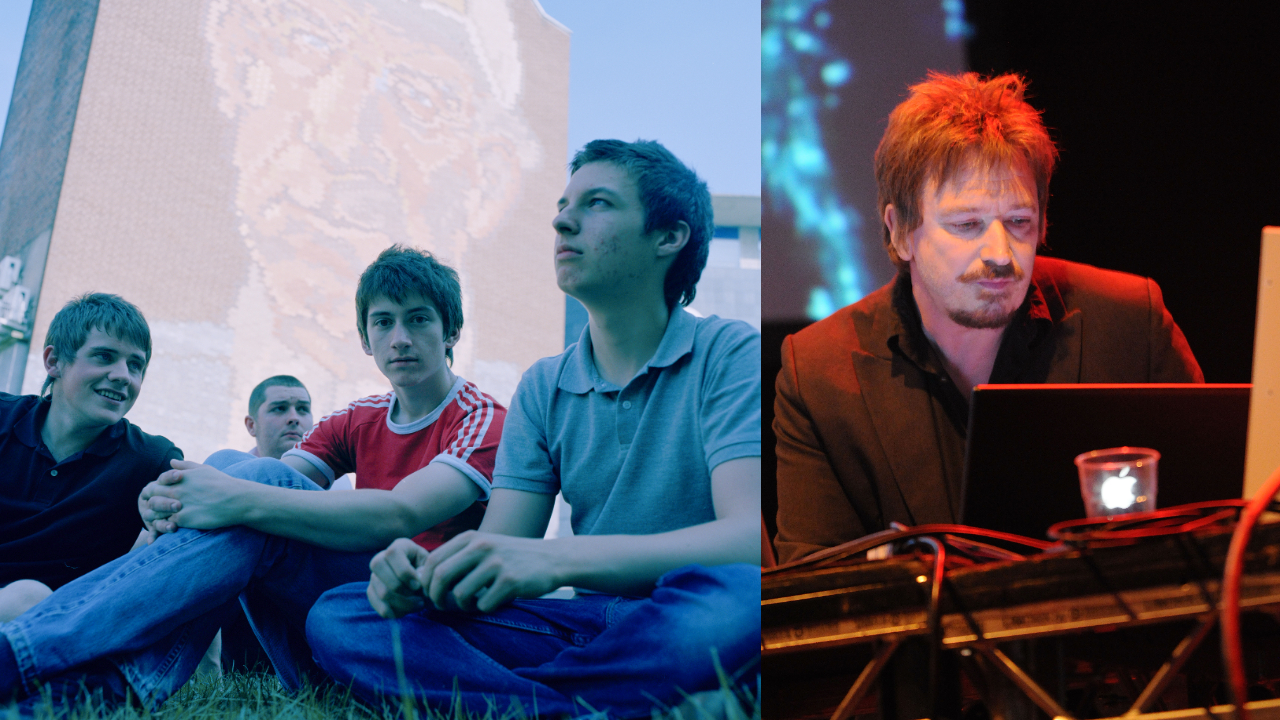"The most unsubtle, one-dimensional noise": the chart-topping indie anthem that prompted an ex-member of Depeche Mode to write a letter of complaint
Safe to say that Alan Wilder is not a fan of this beloved indie-rock hit

Select the newsletters you’d like to receive. Then, add your email to sign up.
You are now subscribed
Your newsletter sign-up was successful
Want to add more newsletters?

Every Friday
Louder
Louder’s weekly newsletter is jam-packed with the team’s personal highlights from the last seven days, including features, breaking news, reviews and tons of juicy exclusives from the world of alternative music.

Every Friday
Classic Rock
The Classic Rock newsletter is an essential read for the discerning rock fan. Every week we bring you the news, reviews and the very best features and interviews from our extensive archive. Written by rock fans for rock fans.

Every Friday
Metal Hammer
For the last four decades Metal Hammer has been the world’s greatest metal magazine. Created by metalheads for metalheads, ‘Hammer takes you behind the scenes, closer to the action, and nearer to the bands that you love the most.

Every Friday
Prog
The Prog newsletter brings you the very best of Prog Magazine and our website, every Friday. We'll deliver you the very latest news from the Prog universe, informative features and archive material from Prog’s impressive vault.
The 00s were an exciting, shapeshifting time for British indie, a decade in which a new wave of guitar bands were pulling the genre all over the place. But one man was not so appreciative, and that man was ex-Depeche Mode keyboardist Alan Wilder.
The year was 2008, over a decade since Wilder departed Depeche Mode and the world of mainstream music to focus on his experimental project Recoil. He was not happy at the direction the music industry had gone in the meantime and was obviously so miffed about the whole thing that he felt compelled to write a letter to Side-Line Magazine.
First off, he wanted to air his grievances about, erm, sort of everything really. “Why is it the audio quality of music is degenerating?” he said. “Music ‘sounds’ worse. We have stopped listening, we don’t time. We only have time to be smacked in the face by the louder, most attention-grabbing blast of souped-up noise imaginable until ear fatigue steps in.”
Now, Alan – who, it must be said, deserves respect for being the driving creative force behind Enjoy The Silence, not only a Depeche Mode classic but one of the best songs of all time – obviously realised at this point that he needed an example to back up his accusations of this “souped-up noise” ruining his day and it was none other than the chart-topping debut single by Arctic Monkeys that he turned to.
“True excitement comes from variation in rhythm, tone, pitch and a wide range of dyanmics which in turn provides space and warmth – something you’re unlikely to find in much of today’s rock/pop music” he stated. “If you want a good example, listen to the Arctic Monkeys’ I Bet You Look Good On The Dancefloor for a bombardment of the most unsubtle, one-dimensional noise.”
Whoa, bit harsh Alan! I Bet You Look Good On The Dancefloor was already an indie disco modern classic by that point, having been released three years prior to Wilder’s letter, in October 2005. Three years in which you imagine Wilder came out in hives every time he heard it.
His problem with Alex Turner & co.’s big breakthrough, he explained in the letter, was that he found it symptomatic of a wider issue in music to do with mastering, that thing that happens at the very end in the process of making a record that no-one really understands.
The latest news, features and interviews direct to your inbox, from the global home of alternative music.
“In recent years, a revolution in processing technology has instigated a change in the way albums are mastered,” he said. “In order to compete, A&R men, producers, even the artists are demanding that mastering engineers, via digital compression, crank up the level so high that all dynamic range is callously sacrificed.”
Still, bit harsh to single out Arctic Monkeys, especially in a year when All Summer Long by Kid Rock went to Number One. Still, they managed to survive the verbal onslaught. Quite what Alan thought when regular Arctics collaborator James Ford started producing Depeche Mode records, we are yet to know. If you're in the mood for a "bombardment of the most unsubtle, one-dimensional noise", have a listen below:
Niall Doherty is a writer and editor whose work can be found in Classic Rock, The Guardian, Music Week, FourFourTwo, Champions Journal, on Apple Music and more. Formerly the Deputy Editor of Q magazine, he co-runs the music Substack letter The New Cue with fellow former Q colleague Ted Kessler. He is also Reviews Editor at Record Collector. Over the years, he's interviewed some of the world's biggest stars, including Elton John, Coldplay, Radiohead, Liam and Noel Gallagher, Florence + The Machine, Arctic Monkeys, Muse, Pearl Jam, Depeche Mode, Robert Plant and more.
You must confirm your public display name before commenting
Please logout and then login again, you will then be prompted to enter your display name.

